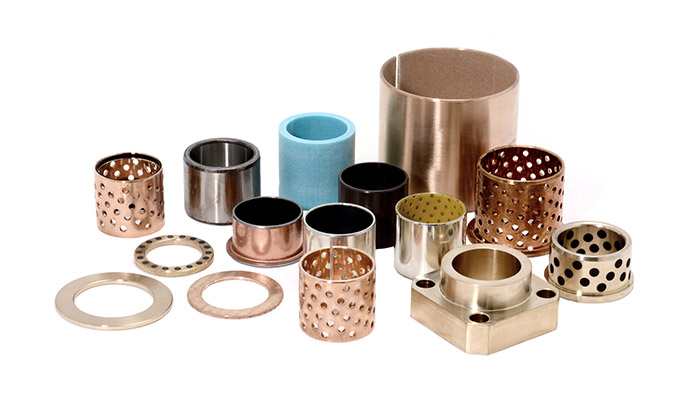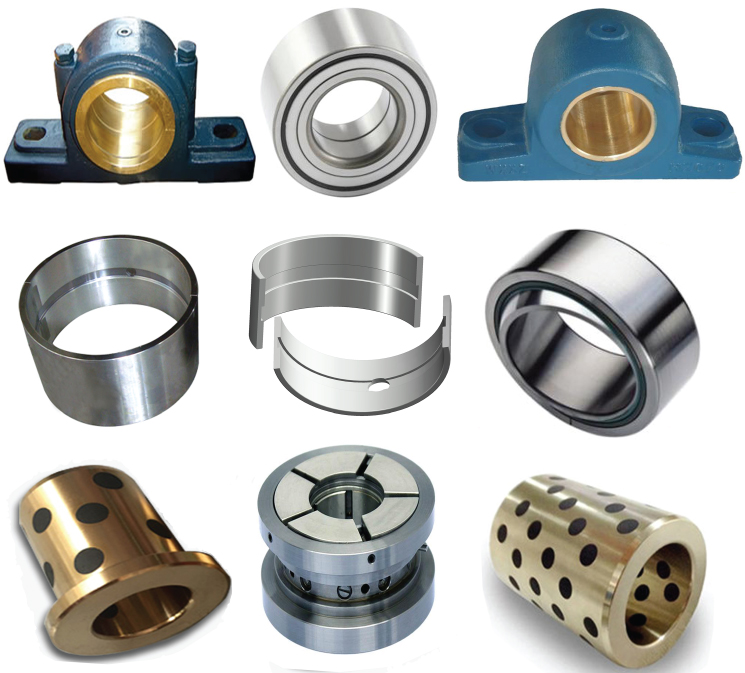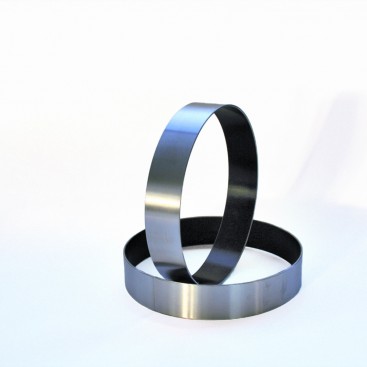Contribution of Sliding Bearings to Agricultural Machinery and Equipment
Sliding bearings play a crucial role in enhancing the functionality and efficiency of various agricultural machinery and equipment. Here’s how they contribute:
Smooth Movement: Sliding bearings provide smooth and low-friction movement in agricultural machinery, ensuring efficient operation of components like pivots, linkages, and joints.
Load Distribution: Sliding bearings distribute loads evenly across surfaces, reducing stress on components and extending the lifespan of agricultural equipment.
Durability: Sliding bearings are designed to withstand harsh conditions commonly encountered in agriculture, such as exposure to dirt, debris, and moisture.
Low Maintenance: Sliding bearings require minimal maintenance due to their self-lubricating properties, reducing downtime and operational costs.
Vibration Dampening: Sliding bearings help dampen vibrations in agricultural machinery, improving operator comfort and reducing wear on components.
Enhanced Precision: Sliding bearings ensure precise movement in equipment like planting and harvesting machinery, contributing to accurate and consistent operations.
Versatility: Sliding bearings are used in a wide range of agricultural applications, including tractors, combines, plows, irrigation systems, and more.
Cost Efficiency: Sliding bearings provide a cost-effective solution for agricultural machinery, offering long service life and reducing the need for frequent replacements.
Reliability: Sliding bearings offer reliable performance even in challenging agricultural environments, contributing to the overall reliability of the equipment.
Environmental Adaptability: Sliding bearings can handle varying weather conditions and exposure to agricultural chemicals without compromising performance.
Overall, sliding bearings play a vital role in ensuring the smooth operation, durability, and performance of agricultural machinery and equipment, contributing to increased productivity and reduced maintenance requirements in the agriculture sector.
Contribution of Sliding Bearings to Hydraulic Systems and Pumps
Sliding bearings play a crucial role in ensuring the smooth and efficient operation of hydraulic systems and pumps. Here’s how they contribute to these applications:
Load Distribution: Sliding bearings distribute the axial and radial loads generated by hydraulic components, such as pistons and impellers, across their surfaces. This helps prevent localized stress and ensures uniform load distribution, enhancing the overall stability of the system.
Reduced Friction: Sliding bearings minimize friction between moving parts within hydraulic systems and pumps. This friction reduction leads to lower energy consumption and less heat generation, contributing to improved efficiency and reduced wear and tear.
Fluid Film Formation: Properly lubricated sliding bearings create a fluid film between their surfaces. This fluid film serves as a barrier that prevents direct contact between the bearing surfaces, reducing friction and wear and enabling smooth movement even at high speeds.
Sealing Function: Sliding bearings often incorporate seals to prevent the ingress of contaminants, such as dirt and moisture, into the hydraulic system or pump. This sealing function helps maintain the integrity of the system’s components and extends their lifespan.
Alignment Compensation: In hydraulic systems, sliding bearings can compensate for minor misalignments between components, such as shafts and impellers. This ability to accommodate misalignment contributes to reduced stress and longer component life.
Quiet Operation: Sliding bearings help dampen vibrations and noise generated during the operation of hydraulic systems and pumps. This contributes to quieter and more comfortable working environments.
Customization: Sliding bearings can be designed and customized to meet the specific requirements of different hydraulic systems and pumps. This adaptability ensures optimal performance and longevity.
Overall, sliding bearings enhance the reliability, efficiency, and longevity of hydraulic systems and pumps by minimizing friction, distributing loads, facilitating smooth movement, and providing protection against contaminants. Their contribution is essential to achieving consistent and precise fluid transfer and power generation in various industrial applications.
Impact of Proper Lubrication on Sliding Bearings
Proper lubrication plays a critical role in the performance and longevity of sliding bearings. Here’s how it affects their operation:
- Reduced Friction and Wear: Lubrication forms a thin film between the sliding surfaces of the bearing, reducing direct metal-to-metal contact. This minimizes friction and wear, which can significantly extend the bearing’s lifespan.
- Heat Dissipation: Lubricants help dissipate heat generated during operation by carrying away excess heat from the friction zones. This prevents overheating and potential damage to the bearing and surrounding components.
- Corrosion Prevention: Lubricants provide a protective barrier against moisture and corrosive substances, preventing the formation of rust and corrosion on the bearing surfaces.
- Sealing Effect: Proper lubrication can help create a sealing effect that prevents contaminants from entering the bearing, maintaining a clean and efficient operating environment.
- Noise and Vibration Reduction: Adequate lubrication helps dampen noise and reduce vibration caused by friction between bearing surfaces. This contributes to quieter and smoother operation.
- Enhanced Load Distribution: Lubrication ensures even load distribution across the bearing surfaces, preventing localized wear and extending the bearing’s overall life.
- Stability and Performance: Proper lubrication maintains consistent performance and stability by minimizing variations in friction and reducing the risk of sudden failures.
- Seizure Prevention: Lubricants prevent sliding surfaces from seizing or sticking together, even during periods of prolonged inactivity.
- Optimized Efficiency: Well-lubricated bearings experience less energy loss due to friction, resulting in improved overall efficiency of the machinery.
Choosing the right lubricant type, viscosity, and lubrication interval is crucial to ensuring the optimal performance and durability of sliding bearings. Regular maintenance and monitoring of lubrication levels are essential to prevent issues and extend the bearing’s service life.
editor by CX 2024-04-17




